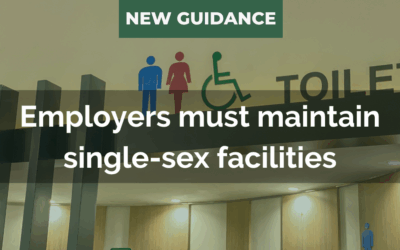In one of the final Acts of the Conservative government, a Code of Practice on dismissal and re-engagement (the Code) more commonly known as “fire and rehire” was passed through Parliament and came into effect on 18 July 2024.
This is a statutory code which must be taken into account but it is nowhere near as robust as the Labour Party would like (see our review of the 2024 manifesto here), we can therefore, expect to see further changes to the fire and rehire rules.
Fire and rehire is often seen as a tactic for large businesses or the public sector, but our lawyers have advised on the application of fire and rehire for businesses of all shapes and sizes. So what do employers need to know?
What is fire and rehire?
The practice of ‘fire and rehire’ involves dismissing employees and then offering to re-employ them on new, often less favourable, terms.
It is often stated that fire and rehire are necessary for the survival of businesses or to correct administrative errors.
Critics argue that it undermines workers’ rights and job security. The Code aims to strike a balance between these competing interests, providing guidelines for employers while offering additional protections for employees.
This is a significant move to protect workers’ rights and promote fair employment practices. The Code represents a crucial step in addressing a controversial employment tactic that has drawn criticism from workers, unions, and employment rights advocates.
What does the Fire and Rehire Code say?
One of the Code’s central tenets is that ‘fire and rehire’ should be used only as a last resort. Employers must explore all possible alternatives before considering this option. Businesses are encouraged to seek more collaborative solutions to address financial or operational challenges.
The Code also mandates a consultation process “for as long as reasonably possible.” Unlike collective redundancy consultations, there is no minimum time period specified.
The Code requires employers to re-examine proposed changes once they become aware that employees don’t agree with the changes. Employers should consider a more dynamic and responsive approach to negotiations, with employers expected to consider feedback from employees and their representatives.
The Code also explicitly prohibits certain practices. Employers must not threaten dismissal if it’s not actually being considered, nor should they use such threats to coerce employees into accepting new terms and conditions. These provisions aim to prevent the misuse of ‘fire and rehire’ as a negotiation tactic and to protect employees from undue pressure.
What does the Code mean for employers?
While the Code doesn’t introduce a new standalone claim for breaches of its provisions, it does carry significant weight in Employment Tribunals.
Tribunals must take the Code into account. Importantly, if an employer unreasonably fails to follow the Code, tribunals have the power to increase compensation by up to 25%. This uplift mechanism, similar to that used with the Acas Code on Grievance and Disciplinary Procedures, provides a strong incentive for employers to adhere to the new guidelines.
It’s worth noting, however, that this uplift doesn’t apply to protective awards for failure to inform and consult in collective redundancy situations.
Is fire and rehire likely to change?
While the introduction of this Code marks a significant development, it may not represent the final word on ‘fire and rehire’ practices in the UK. The Labour Party has pledged to go further if it comes to power, promising to legislate to “end fire and rehire” and to replace and strengthen the current Code.
As such, employers should view the current Code as a minimum standard and be prepared for potentially stricter regulations in the future. For now, businesses contemplating changes to employment terms would be well-advised to familiarise themselves with the Code’s provisions and to seek early advice from Employment Law Solutions.
In conclusion, the new Code of Practice on ‘fire and rehire’ represents a significant step towards fairer employment practices in the UK. By encouraging consultation, exploration of alternatives, and responsible use of dismissal and re-engagement tactics, it aims to balance the needs of businesses with the rights of workers. As this area of employment law continues to evolve, employers will need to stay informed, adaptable and seek reliable advice.
Employment Law Solutions don’t just offer basic HR advice, the lawyers help clients navigate the ever-changing field of HR and understand the ever-evolving world of employment law. By offering a monthly retainer service you are able to benefit from legal advice and employment contract reviews 24/7, 365 days, all while spreading the cost over 12 monthly payments. Contact us to see how Employment Law Solutions can help you and your business.




